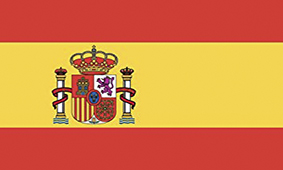
Spanish Mountain Gold's BC project passes archaeological test


In a press release, Spanish Mountain said the survey found the investigated area to have sustained previous disturbance through extensive forestry-related and placer mining activities. Thus, no remains or artifacts are expected to be found there.
This means that the mining operation proposed by the Vancouver-based company in its 2017 Preliminary Economic Assessment can move forward as planned.
The archaeological assessment follows a field program that took place in the summer of 2018 led by archaeologists, field technicians and heritage specialists representing all three First Nations communities whose traditional territories encompass the project area; the Williams Lake Indian Band, Xatśūll First Nation and Lhtako Dené Nation.
"We have now achieved a significant milestone in the overall permitting process and have thereby further de-risked our project. We are satisfied that the proposed project footprint does not appear to impact areas that may be of archaeological significance to our First Nations communities," said Larry Yau, CEO of Spanish Mountain Gold.
The firm's sole project is located in southern-central British Columbia, 70 kilometres northeast of Williams Lake. It is a two-zone project in which the pit-delineated high-grade core or First Zone of the multi-million-ounce resource is expected to sustain a stand-alone operation exceeding 24 years.
Additionally, Spanish Mountain reports that resource ounces for the Second Zone, which are not included in its 2017 PEA, present future development opportunities for the project.


Trump weighs using $2 billion in CHIPS Act funding for critical minerals

Codelco cuts 2025 copper forecast after El Teniente mine collapse

Electra converts debt, launches $30M raise to jumpstart stalled cobalt refinery

Barrick’s Reko Diq in line for $410M ADB backing

Abcourt readies Sleeping Giant mill to pour first gold since 2014

Nevada army depot to serve as base for first US strategic minerals stockpile

SQM boosts lithium supply plans as prices flick higher

Viridis unveils 200Mt initial reserve for Brazil rare earth project

Tailings could meet much of US critical mineral demand – study

Kyrgyzstan kicks off underground gold mining at Kumtor

Kyrgyzstan kicks off underground gold mining at Kumtor

KoBold Metals granted lithium exploration rights in Congo

Freeport Indonesia to wrap up Gresik plant repairs by early September

Energy Fuels soars on Vulcan Elements partnership

Northern Dynasty sticks to proposal in battle to lift Pebble mine veto

Giustra-backed mining firm teams up with informal miners in Colombia

Critical Metals signs agreement to supply rare earth to US government-funded facility

China extends rare earth controls to imported material

Galan Lithium proceeds with $13M financing for Argentina project

Kyrgyzstan kicks off underground gold mining at Kumtor

Freeport Indonesia to wrap up Gresik plant repairs by early September

Energy Fuels soars on Vulcan Elements partnership

Northern Dynasty sticks to proposal in battle to lift Pebble mine veto

Giustra-backed mining firm teams up with informal miners in Colombia

Critical Metals signs agreement to supply rare earth to US government-funded facility

China extends rare earth controls to imported material

Galan Lithium proceeds with $13M financing for Argentina project

Silver price touches $39 as market weighs rate cut outlook

















